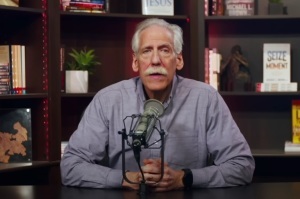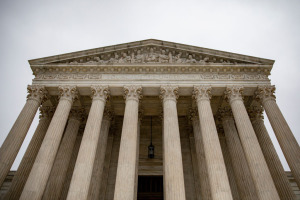Liberal Archbishop Reflects on Divided Anglican State
As the world's Anglicans remain divided over orthodoxy and human sexuality issues, center stage is increasingly being given to the Anglican leaders of the worldwide denomination, noted a liberal Anglican archbishop.
"[A]nd I very much regret this," commented the Most Rev. Njongonkulu Ndungane, archbishop of Cape Town and Primate of the Anglican Church of Southern Africa, who recently spoke at a Bishop's Forum.
Amid reports indicating the 77 million-member Anglican Communion is on the verge of a split, Ndungane noted that the current difficulties among the Anglican churches should not primarily be handled by the Primates (Anglican leaders), but by the Anglican Consultative Council, which meets approximately every three years with episcopal, clerical and lay representatives from each of the 38 provinces across the more than 160 countries that make up the Anglican Communion.
"[My] conviction is that this (Anglican Consultative Council) is the Instrument of Unity which should primarily be the place for handling the current difficulties and the inter-Anglican, provincial and relationships that are affected by them," Ndungane said.
The South African archbishop's recent speech and reflection on the state of affairs within the Communion comes weeks after Nigerian Primate the Most Rev. Peter J. Akinola installed a local minister in Woodbridge, Va., as missionary bishop of the Convocation of Anglicans in North America (CANA) – a growing conservative splinter group and an offshoot of the Church of Nigeria. Akinola has been labeled as a fierce critic of the Episcopal Church, which widened rifts when it consecrated an openly gay bishop in 2003, and has remained firm in his demand that the U.S. arm of Anglicanism get "back in line" with the Anglican Communion.
Primates at a February meeting in Tanzania gave the Episcopal Church a Sept. 30 deadline, requesting an unequivocal pledge not to authorize same-sex blessings and confirm another openly gay bishop "unless some new consensus on these matters emerges across the Communion."
Last month, Archbishop of Canterbury Rowan Williams – the Anglican spiritual leader – said that after the deadline, he would leave the decision about the place of the Episcopal Church in the Communion to the Primates and not himself.
In his recent reflection, Ndungane said, "[I]t seems that center stage is increasingly being given to the Primates – and I very much regret this."
"What grieves me most, is that through not holding to the internal processes of this Instrument of Unity, we have undermined, and so lost our grip, on the assumptions of unity in communion that underlie our common life," he said, alluding to the Primates meeting as one of the four Instruments of Unity.
Ndungane, who has criticized the dominant talks of the controversy over homosexuality within the Anglican Communion, saying that it has sidetracked global issues of AIDS and poverty, stressed again that human sexuality is "not the prime concern for most Christians in their life of faith."
U.S. Presiding Bishop Katharine Jefferts Schori expressed a similar view when she addressed the Church Club of New York (layperson's group) last week. She said this is one of the most exciting times in history to be an Episcopalian and an Anglican.
"The Communion is moving, in what some people see as seismic kinds of ways, but it's moving. It's not a dead and dormant thing," she said as she referred to the talks and work around missions in the Communion, according to the Episcopal News Service.
"I am happy to tell you that almost everywhere I go, I see signs of enormous health and vitality in congregations and dioceses. I don't see people moping."
Akinola and CANA missionary bishop the Rt. Rev. Martyn Minns had stressed the need to get on with the mission of the church and the work of evangelism in the world during the installation service on May 5. Except Minns and about 34 congregations have chosen to proclaim Jesus Christ as "faithful Anglicans" apart from the Episcopal Church, which they believe has departed from Christian orthodoxy and Anglican tradition.
"Of course, some may leave the Communion as a result of our current problems," said Ndungane. "But we must not take ourselves too seriously. As Joost de Blank once said 'God works His purposes out, despite the confusion of our minds.'
"I suspect that future generations will see this as something of a storm in a teacup, and certainly not as central to the Christian life. For the center of Christian life is Jesus Christ."





























